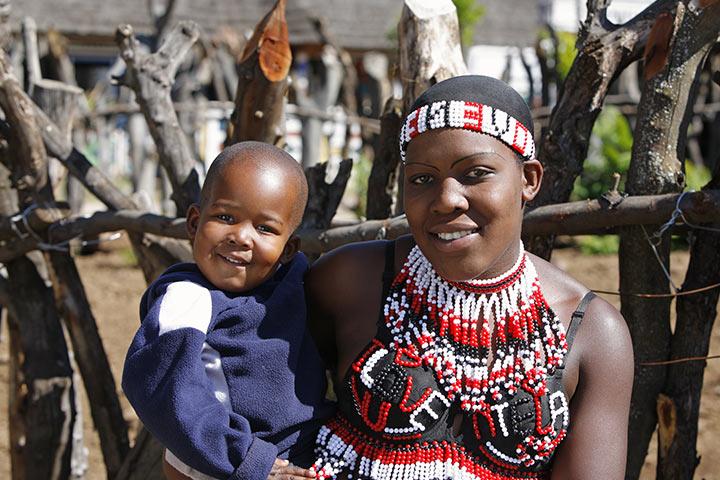
The Zulus of South Africa
Zulu is made up of Nguni-speaking people in KwaZulu-Natal province, South Africa.
They are a branch of the southern Bantu and have close ethnic, linguistic, and cultural ties with the Swazi and Xhosa.
The Zulu are the single largest ethnic group in South Africa and numbered about nine million in the late 20th century.
There’s no naming ceremony in the Zulu culture. There is, however, a ceremony called imbeleko to introduce the child to the ancestors, thank them and ask them to protect it.
This is because babies are named before they are born in Zulu.
A goat must be slaughtered for the purposes of the imbeleko as a sacrifice to the ancestors.
The family elder responsible for speaking to the ancestors will call the baby by its name when presenting it to the ancestors at the same time the goat is being slaughtered.
Usually, Zulus carry more than one name and the names are the family’s expectations and encouragement for a baby.
As with many African names, Zulu names have very specific meanings. Here’s a list of the more common ones; Amahle – The beautiful ones; Andile: – They have extended, the family is growing; Bongani – Be thankful; BongiNkosi – Be grateful to God; Busisiwe – (Baby) is blessed and Langalibalele – When there was sunshine.









